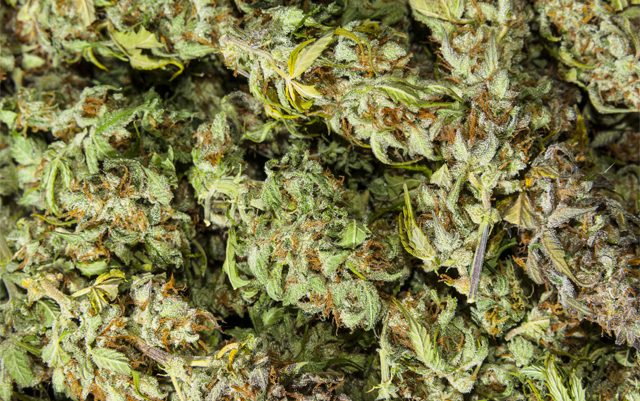When Oregon legalized cannabis in 2014, they made swift efforts to get legal product on the shelves of licensed dispensaries in the hopes of reducing the black market for the plant as quickly as possible. While they were successful in this regard, with early-access sales and issuing thousands of licenses to growers, this has unfortunately left them with a new problem – oversupply. According to a report from the Oregon Liquor Control Commission earlier this year, the state has enough cannabis to supply its residents for the next six and a half years.
In an effort to address the oversupply issue, the state has passed two different bills that were signed into law by Governor Kate Brown last week. The more notable bill of the two was Senate Bill 582, which would allow the governor the authority to enter into agreements for exporting their excess cannabis to nearby states. However, it is specified that the governor can only use this authority if the federal government makes it legal to transport the plant across state lines – or the Justice Department amends their policies to allow such sales between states to take place.
“You have people using water in the desert in Nevada to grow mediocre cannabis, or in Florida, where they have to dehumidify giant spaces, consuming twice the energy,” Adam J. Smith, founder and director of the Craft Cannabis Alliance based in Oregon, told the Los Angeles Times. “Oregon wouldn’t have an oversupply problem if we could access legal markets like these.”
The second bill that was signed to address the situation with oversupply was Senate Bill 218, which gives the Oregon Liquor Control Board more authority when issuing new licenses to growers, based on the current supply and demand in the industry. This would mean that there are likely to be few new licenses being awarded to growers in the state for the time being – after all, if we’re basing this off supply and demand, the current supply far outweighs the state’s possible demand.
As things currently stand – with a six-year supply of cannabis that will start to go stale long before it can be sold – some producers have turned to extracting the THC to make oils, which will have a longer shelf life. It has also driven the price of dried flower down, from $10 per gram in October 2016 to less than $5 per gram as of December 2018.
There is hope from some that the passing of this legislation will open the door to conversations on a federal level about inter-state cannabis import and export – but the chances of any real progress being made during the Trump Administration seem unlikely. However, when the time comes that the federal government is ready to start amending their policies on cannabis, Oregon will be the first prepared to supply out-of-state marijuana industries in addition to their own.






